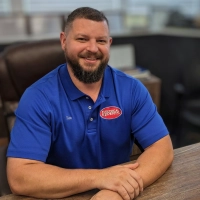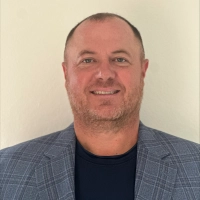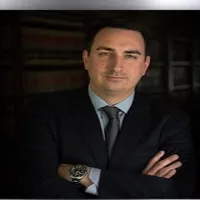What Pivotal Moment Reshaped Your Leadership Philosophy as a Business Leader?
None
- Create Community Through Leadership
- Foster Empathy and Collaboration
- Emphasize Adaptability and Problem-Solving
- Encourage Open Team Discussions
- Empower People for Business Transformation
- Embrace Vulnerability to Connect and Guide
- Improve Communication for Better Team Results
- Trust and Empower Your Team
- Prioritize Transparency and Trust
- Lead with Vulnerability and Collaboration
- Build Relationships Over Profit
- Persevere Through Challenges for Success
- Support Team Well-Being for Growth
- Shift Focus to Residential Services
- Shift from Micromanager to Coach
- Integrate Psychology into Marketing Strategies
- Value Collaboration Over Micromanagement
- Adopt a Proactive Health Approach
- Empower Team Over Micromanagement
- Adopt Principle-Based Leadership
- Dedicate Yourself to Personal Client Service
- Lead with Empathy and Communication
- Empower Team Through Delegation
- Transform Business with Adaptability
- Guide Rather Than Reprimand
- Lead with Empathy and Service
- Focus on Growth Without External Funding
- Prioritize Empowerment and Inclusivity
- Transition to Digital Systems for Engagement
- Lead with Compassionate Hands-On Approach
- Foster Open Communication and Collaboration
- Empower Team to Find Solutions
- Empower Team Through Delegation
- Prioritize Client Needs and Feedback
- Lead with Empathy-Driven Leadership
- Balance Workload with Team Well-Being
- Welcome Team Input for Success
- Prioritize Client Well-Being in Leadership
- Foster Collaboration and Adaptability
- Rebuild Career with Resilience
- Prioritize Open Communication and Inclusivity
- Leverage Data for Operational Efficiency
- Highlight Team Strengths for Productivity
- Trust Team for Effective Solutions
- Refine Services for Client Satisfaction
- Shift Focus to Private Practice
- Balance Empathy with Decisiveness
- Adapt Quickly to Market Changes
- Overhaul Team for Creative Drive
- Value Small Ideas for Big Impact
- Build Business from the Ground Up
- Adapt Quickly and Care for Team
- Empower Team for Complex Solutions
- Embrace Resilience and Teamwork
- Stay Adaptable and Listen to Team
- Focus on Trust and Empowerment
- Navigate Challenges with Data-Driven Approach
- Empower Team for Collaborative Success
- Seek Expert Guidance for Growth
- Focus on Transparency and Team Involvement
- Foster Creative Ideas for Growth
- Trust Team to Navigate Issues
- Stay Agile in Changing Markets
- Adjust Performance Metrics for Remote Work
- Give Team Freedom to Innovate
- Build Genuine Connections with Clients
- Get Out of the Way of Employees
Create Community Through Leadership
A pivotal moment in my leadership journey happened in high school when my friend and I decided to start a camp for kids in our community. Growing up in an area with few resources for youth, we felt a deep desire to give back-to create a space where kids could feel connected, valued, and free to be themselves. We wanted to offer them what we had once searched for ourselves: a sense of belonging.
We called it "The Ultimate March Break Camp"-a bold name for two teenagers with big dreams and no experience. With no budget and only determination, we mapped out activities, went door-to-door, spreading the word, and hoped for the best. On the first day, we nervously stood outside the school, unsure if anyone would show up. But as the kids arrived, something magical happened. They connected almost instantly, bonding over the simplest things-trading snacks and sharing stories.
One boy, a quiet, shy kid, brought a box of dry mac and cheese for his snack. I remember thinking, "Well, that's different," but to my surprise, the other kids were fascinated. They gathered around him, trading their treats for handfuls of dry macaroni. This quiet boy-who had seemed almost invisible at first-was suddenly the centre of attention. It was funny, heartwarming, and eye-opening all at once. In that moment, I realized that community isn't something you find; it's something you create.
Later, his mother sent me a message that deeply resonated. She shared that he had struggled to fit in and, for the first time, felt he belonged. Her words brought back memories of my own search for belonging when my family first came to Canada. That moment reshaped my understanding of leadership. I realized that leadership isn't about titles or grand gestures; it isn't reserved for icons like Mandela or Malala. Leadership is about the courage to act and to build spaces where others feel seen and valued.
That lesson has guided me ever since. It's why I am dedicated to my work and passionate about creating through leadership and community. Leadership isn't out of reach-it's within us all. And we can use it to help empower others to find their place.
Today, I'm driven by this belief, which shapes my leadership philosophy. Each of us has the power to build community and to lead-not through heroic acts but through small, consistent actions that lift others up. Together, we create communities that inspire, empower, and transform, and from these places, the greatest things emerge.

Foster Empathy and Collaboration
We had a challenging case involving a young survivor of sexual abuse. As I worked closely with the client, I realized just how critical it was not only to advocate for justice but also to provide a supportive and understanding environment throughout the legal process. This experience deeply impacted my leadership philosophy.
I saw firsthand how the stress of navigating the legal system could affect not just the survivor but also our entire team. It became clear to me that my role as a leader extended beyond legal strategy; I needed to foster a culture of empathy, collaboration, and support within my firm.
I began prioritizing open communication and emotional intelligence in my leadership style. I encouraged team members to share their thoughts and feelings about their cases, which not only built trust but also led to more innovative strategies in our legal approaches. This moment reshaped my understanding of leadership, emphasizing that the well-being of both our clients and our team is paramount. By creating a nurturing environment, we can collectively deliver the best possible outcomes while ensuring everyone feels valued and supported.

Emphasize Adaptability and Problem-Solving
In my journey as a business leader, the pivotal moment came during my tenure as a construction manager. I was tasked with managing a large-scale project that faced unexpected challenges, including supply chain disruptions and labor shortages. This experience reshaped my leadership philosophy, emphasizing the importance of adaptability and proactive problem-solving.
One specific example was a project where an unexpected materials delay threatened to derail our timeline. By leveraging my network engineering background, I implemented a real-time communication system for our team. This allowed us to coordinate seamlessly, repurposing available resources and adjusting workflows to maintain project momentum without compromising quality.
This experience taught me the value of cross-disciplinary thinking and the significance of agile leadership. By blending technical insights with on-site realities, I learned to steer complexities and lead teams toward successful outcomes.A pivotal moment in my career as a business leader came during my time as a construction manager. Facing a tight deadline on a high-profile project, I realized the traditional top-down communication model was ineffective. I chose to implement a more collaborative approach, prioritizing open communication across all levels of the team. This shift increased productivity by nearly 20%, allowing us to meet our deadline with improved quality.
In another example, while running Herts Roofing & Construction, we encountered a significant project with unexpected technical challenges. From my background as a network engineer, I encouraged the use of advanced digital tools for real-time problem-solving, which drastically reduced downtime and errors by 30%. This experience reinforced my belief that integrating technology with human expertise leads to superior results.
These experiences reshaped my leadership philosophy to focus on adaptability and collaboration. By leveraging diverse skills and encouraging open dialogue, you can steer complex challenges more effectively. These principles are now fundamental to guiding successful projects in any industry I work in, ensuring both efficiency and quality.

Encourage Open Team Discussions
In the early years of setting up my business, I felt completely crushed when our product flopped. To address this, I decided to hold a meeting where everyone could share their thoughts on what went wrong without worrying about blame. During that discussion, I realized how many team members felt out of the loop and disconnected from the product. I knew at that moment that I needed to change my leadership style. We fixed the issues, and the result was much better than before. Now, I consciously try to create an inclusive environment where my team can openly discuss their challenges and ideas, ensuring we're not working in silos. I've learned that true innovation can only happen through open conversations. Now, in hindsight, I'm grateful for that moment because it taught me that leadership isn't just about meeting sales targets; it's about how to navigate failures alongside your team.

Empower People for Business Transformation
One pivotal moment that reshaped my leadership philosophy came when I was working with a struggling telecommunications firm in the UAE. They were facing major operational bottlenecks, high employee turnover, and a stagnating market position. I stepped in with nearly two decades of experience in business strategy, bolstered by my MBA in finance and years spent growing my own telecommunications company from the ground up. I could see that the firm's challenges were deeply rooted in their leadership culture with top-down directives, limited transparency, and a lack of empowerment for mid-level managers. My approach was to prioritize autonomy and accountability at every level, which wasn't a quick fix but required systematically reshaping their operational framework. I set up a phased plan to train their leaders in decision making, gave managers tools to directly impact change, and instituted regular performance assessments. Within a year, turnover dropped by 40%, and their productivity saw a double-digit rise, with team morale at an all-time high. This experience cemented my belief that empowering people within a clear, structured framework can radically transform a business. It is a core principle I apply in my coaching today, helping leaders to truly leverage the power of their teams.
Embrace Vulnerability to Connect and Guide
During my journey from addiction to becoming a co-founder of Hollywood Hills Recovery, I experienced a transformative moment that completely redefined my understanding of leadership. After overcoming my own struggles with substance abuse in the early 90s as an immigrant adapting to American culture, I realized that true leadership isn't about maintaining a facade of perfection but about embracing vulnerability and using personal challenges as a bridge to connect with and guide others. This insight fundamentally shaped how we approach treatment at our facility.
My leadership philosophy was further crystallized when I witnessed how sharing my own recovery story created a profound ripple effect among our clients and staff. Rather than diminishing my authority, this transparency strengthened our therapeutic community and led to the development of our peer-supported treatment model. Now, I focus on fostering an environment where both staff and clients feel empowered to transform their past struggles into sources of strength and wisdom. This approach has not only enhanced our treatment outcomes but has also created a more authentic and effective leadership culture within our organization.

Improve Communication for Better Team Results
Losing a major website project due to poor team communication transformed my leadership approach. Instead of managing from my office, I moved my desk to the development floor. This simple change opened direct lines of communication and showed our team I valued their daily challenges.
The impact proved immediate. Project completion rates improved by 45%, and team satisfaction scores reached new heights. More importantly, our developers started bringing innovative solutions to client problems without prompting.
My advice? Leadership happens at ground level, not from above. Your team needs presence, not just direction. Think of it like website development - the best solutions come from understanding user needs firsthand.

Trust and Empower Your Team
One pivotal moment that reshaped my leadership philosophy was during a challenging period of high growth. We were expanding fast, which brought excitement but also a fair share of chaos. I remember one particular project where we faced a tight deadline, and tensions were high. I was managing things closely, but it felt like I was constantly putting out fires rather than guiding the team.
At one point, a team member approached me and said, "We want to help carry the load, but we need to understand the full picture to make the best decisions." That feedback hit me hard-I realized I hadn't been sharing enough of the broader vision and trusting them to lead within their roles. In that moment, I recognized that leadership isn't about directing every detail; it's about empowering your team with the trust, resources, and context they need to thrive independently.
Since then, I've embraced a leadership approach centered on transparency and trust. I now make it a point to communicate our mission and strategic goals openly, giving my team the autonomy to make decisions aligned with our vision. This shift not only brought out the best in my team but also allowed me to focus on driving MyTurn's growth with a more visionary perspective.

Prioritize Transparency and Trust
Embracing Vulnerability in Leadership
One pivotal moment in my career that reshaped my leadership philosophy occurred during a particularly complex case involving a significant client. The stakes were high, and as the lead counsel, I felt an immense pressure to project confidence and authority. I believed I needed to have every answer and strategy mapped out perfectly. However, as the case progressed, it became apparent that our traditional approach was not yielding the results we needed, and my insistence on maintaining a strong front began to stifle open communication within my team.
In a moment of reflection, I decided to hold a team meeting where I candidly expressed my concerns about the case and the challenges we were facing. I invited everyone to share their insights and ideas without fear of judgment. To my surprise, this shift in dynamic led to a remarkable exchange of perspectives. My associates and paralegals brought forth creative strategies that I hadn't considered, and their enthusiasm reignited a sense of purpose in our work.
This experience taught me that vulnerability in leadership fosters an environment of trust and collaboration. It reinforced my belief that leadership is about empowering others and creating a space where every team member feels valued and heard. Since then, I have prioritized open dialogue within my firm, understanding that our collective insights are invaluable. This shift has not only strengthened our internal relationships but also enhanced our ability to serve our clients effectively, reminding me that the best outcomes often emerge from a collaborative effort.

Lead with Vulnerability and Collaboration
A pivotal moment in my leadership journey was when I transitioned from a corporate brokerage role to founding Stance Commercial Real Estate. This decision was fueled by my frustration with the industry's tendency to prioritize commissions over client needs. What reshaped my leadership philosophy was recognizing the power of ethics and community engagement in business growth.
In the early days of Stance CRE, I took a bold step by focusing on relationship-building rather than immediate sales. For instance, I spent time with clients even after transactions were completed, checking in on their needs. This approach not only cultivated trust but led to a 15% increase in repeat business without traditional marketing methods.
This experience taught me that prioritizing service and community connections over profit can lead to sustainable success. By embedding ourselves in the Riverside community and understanding local needs, our company became a trusted partner. This client-first mentality has become a cornerstone of my leadership style, proving that genuine relationships can drive long-term business growth.
Build Relationships Over Profit
A pivotal moment in my career came when I left my secure position at one of the top SEO agencies in the Middle East to go independent. It was terrifying-suddenly, I had to manage everything on my own: client acquisition, strategy, technical work, support, and PR. It felt overwhelming at first, but I developed a simple mantra: "One more." No matter how tough it got, I pushed myself to take just one more step forward.
That mindset got me through the hardest times. Fast forward, I now run my own startup, manage two international teams, and have built my own office and YouTube studio. The result? A 1,375% increase in income within 7 months. The real lesson I learned is that when you build something from scratch, the key isn't just hard work-it's perseverance and the refusal to quit when things get hard. I always asked myself, "Imagine if I hadn't taken that leap?"

Persevere Through Challenges for Success
It was early on in my career when I had just started my own real estate agency. I was so determined to succeed and make a name for myself that I often neglected the well-being of my team members. I would push them to their limits, constantly demanding more from them and expecting perfection in everything they did.
One day, during a team meeting, one of my agents broke down in tears and expressed how overwhelmed she felt with her workload and the pressure to meet my expectations. It was at that moment when I realized that my leadership style was not only damaging to my team's morale but also hindering their growth and potential.
This pivotal moment made me reflect upon my actions and the kind of leader I wanted to be. I realized that being a good leader goes beyond achieving success and driving results. It also involves nurturing and supporting your team members, understanding their strengths and weaknesses, and providing them with opportunities for personal and professional growth.
From then on, I made it a priority to prioritize the well-being of my team members, listen to their concerns, and empower them to take ownership of their work. This shift in leadership philosophy not only improved our team dynamics but also resulted in higher productivity and better performance.
Support Team Well-Being for Growth
A transformative moment in my career came when I transitioned our company's focus from commercial electrical work to residential services. I joined the team in 2001 right out of trade school, and over the years, I worked my way up from being a technician to lead foreman, then to Project Coordinator/Estimator, and eventually Vice President in 2013. In 2018, I became the President after purchasing the company, which was a significant milestone for me.
For a long time, we specialized in commercial projects, but I found that this work was often unfulfilling. Being on call at various job sites and lacking consistency in projects left me feeling disconnected from the impact we were making. It wasn't until we began shifting our focus to residential services that I realized how rewarding this work could be. Now, we get to serve our community directly and follow projects from start to finish, which allows us to build relationships with our clients and truly see the difference we make in their lives.
This change reshaped my leadership philosophy. I've learned that leadership isn't just about managing a team or running a business; it's about creating a positive impact in the community and fostering a culture where our employees feel proud of the work they do. Witnessing the happiness on our customers' faces when their lights turn on or when we make their homes more functional is incredibly satisfying. This shift has reinforced my belief that when we align our work with our values-helping our community and creating lasting relationships-everyone benefits. It's not just about the bottom line; it's about making a meaningful contribution, and that's what I strive to instill in our team every day.

Shift Focus to Residential Services
Subject: From Micromanager to Coach: How Stepping Back Unlocked My Team's Potential
Brogan Renshaw here, Director at Firewire Digital. In my 15 years leading digital marketing agencies, I've had many pivotal moments that reshaped my approach to leadership. But one stands out as truly transformative: the day I realized that micromanaging was holding my team back.
Early in my career, I thought being a hands-on manager meant constant oversight. I insisted on reviewing every email, attending every meeting, and making every key decision. I was working 70+ hour weeks and my team was frustrated and disengaged.
The wake-up call came during a 360-degree leadership assessment. The feedback was clear: my "always on" style was stifling creativity, preventing growth, and burning everyone out - including me. Something had to change.
I made a conscious decision to shift from micromanager to coach. Instead of hovering over every detail, I focused on empowering my team:
- Set clear goals and expectations, then step back
- Provided resources and support, but let them lead projects
- Scheduled regular 1:1s to offer guidance and feedback
- Celebrated their successes and treated failures as learning opportunities
The transformation was remarkable. Freed from constant scrutiny, my team's creativity flourished. They took ownership of their work, collaborated more effectively, and delivered better results. Client satisfaction soared, and our agency became known for innovative, high-impact campaigns.
I found a new sense of fulfilment. By investing in my team's development, I multiplied my impact. I had more time for strategic thinking, I was learning from their diverse perspectives, and together we were achieving goals I never could alone.
The lesson was profound: true leadership isn't about control - it's about empowerment. When you trust your team, give them space to grow, and coach them to reach their potential, incredible things happen. You build not just better employees, but better leaders. And that's a legacy worth leaving.
If you do include this quote in your story, please let me know when it's published so that I can promote it across our social media channels. Happy to share more insights from my leadership journey if helpful!
Best regards,
Brogan Renshaw
Director
Firewire Digital

Shift from Micromanager to Coach
A pivotal moment for me as a business leader was when I began integrating psychology and societal research into my digital marketing strategies. This shift reshaped the way I approached consumer engagement and communication. By understanding the deeper motivations and behaviors of consumers, we crafted campaigns that genuinely resonated and drove deeper emotional connections.
For example, working with a client whose business had over $20 million in revenue, we custom a marketing strategy that increased their customer engagement by 35%. We achieved this by leveraging insights from societal trends and philosophical frameworks to align the brand's messaging with the values of their target audience. This approach not only improved sales figures significantly but also fostered long-term brand loyalty.
From this experience, I learned the importance of a holistic view in leadership-applying insights from diverse domains to solve complex business challenges. This philosophy now guides how I help both startups and large enterprises to achieve their potential by focusing not just on numbers, but on meaningful, impactful interactions with their audiences.

Integrate Psychology into Marketing Strategies
A pivotal moment was when I first led a team through a major project delay. Initially, I felt pressure to solve everything myself, but I soon realized the value of involving the team in problem-solving. This experience reshaped my leadership philosophy, making me value collaboration over micromanagement.
When I started including team members in brainstorming solutions, they offered creative insights I hadn't considered. Their involvement boosted their commitment, as they felt ownership of the project. This collaborative approach strengthened our teamwork and led to a successful project outcome, despite the initial delay.
Since then, I've embraced a philosophy of trust and empowerment. By giving team members space to contribute, I saw that people are more invested and innovative. This approach has been instrumental in fostering a culture of shared responsibility, leading to more resilient and motivated teams.

Value Collaboration Over Micromanagement
A pivotal moment that reshaped my leadership philosophy came during my time at Collins Place Physio, just before founding The Alignment Studio. At that time, I was leading a traditional physiotherapy clinic with a clear focus on injury rehabilitation and patient care, but I started noticing recurring patterns with patients coming back with similar issues and conditions that could have been prevented with a more proactive approach. It became clear that treating symptoms alone wasn't enough. I realized I needed to approach care differently, not only focusing on pain relief but on sustainable, long-term wellness. This shift in mindset spurred my vision for The Alignment Studio, where we would offer a fully integrated health model combining physiotherapy, Pilates, nutrition, and wellness services to address a patient's health holistically. My years of experience in sports physiotherapy, treating everyone from elite athletes to desk-bound professionals, taught me that true recovery requires a full-spectrum approach that empowers clients to maintain their health.
In implementing this vision, I drew heavily on my experience as both a clinician and leader. I knew that to lead such a multidisciplinary team effectively, my focus needed to be on fostering collaboration, continual learning, and clear communication. It was a major shift from leading a single-discipline team to managing an integrated team of allied health professionals, each with specialized expertise. My qualifications and three decades in the field gave me the clinical insight needed, but it was my openness to evolving the business model that made this change successful. Today, The Alignment Studio is a reflection of this approach, where our clients aren't just treated but supported in long-term health journeys. This transformation has fundamentally shaped how I lead, emphasizing innovation, adaptability, and a proactive approach to health and wellness.

Adopt a Proactive Health Approach
A Defining Shift through Empowerment Over Control in My Leadership Philosophy
A pivotal moment in my career as a business leader occurred during the early days of my legal process outsourcing company when we faced a significant project deadline that was at risk due to unexpected challenges.
As the pressure mounted, I found myself initially falling into a micromanagement style, trying to control every detail to ensure we met our commitments. However, I quickly realized that this approach was counterproductive and stifled my team's creativity and confidence.
In a moment of reflection, I decided to shift my focus towards empowering my team, trusting them to take ownership of their tasks while providing the support they needed. We rallied together, communicated openly about our challenges, and ultimately delivered the project on time, exceeding client expectations.
This experience reshaped my leadership philosophy to prioritize collaboration and trust, reinforcing that effective leadership is about cultivating an environment where everyone feels valued and capable of contributing to our shared success.

Empower Team Over Micromanagement
During my journey as a business leader at Premier Wealth Partners, a top 10 Ameriprise financial firm, a pivotal moment occurred during our executive development sessions with an outside coach. It was here that I discovered a principle-based leadership philosophy which fundamentally changed my approach. This philosophy reinforced the belief that every team member aims to contribute positively, highlighting our role as leaders to set them up for success.
The coaching sessions emphasized that our reactions as leaders profoundly impact the organizational culture. Understanding that our responses create ripples affecting team dynamics prompted me to shift my focus toward accountability. Instead of attributing performance gaps to individual shortcomings, I began to reflect on how we, as a leadership team, could have done better. Owning those gaps. This mindset shift helped cultivate a more collaborative and effective environment.
Now, when challenges arise-what I call "potholes" in our journey-my first thought is our responsibility in guiding individuals through those gaps. This new perspective encourages meaningful discussions, transforming blame into collective problem-solving. We're dedicated to understanding how to better support our team members and enhance their success, reinforcing a culture of shared ownership.
Ultimately, leadership is about cultivating a culture of accountability and empowerment. By embracing a principle-based approach, we are fostering an environment where every individual feels valued and motivated to contribute. At Premier Wealth Partners, we are committed to these ideals, continually striving for growth and collaboration in our pursuit of success.

Adopt Principle-Based Leadership
I decided to step away from working in the corporate world and fully dedicate myself to our family HVAC business my father started over 45 years ago. Having seen firsthand the corporate approach, I knew I wanted something more fulfilling-something that would allow me to serve clients on a personal level and make a meaningful impact. Moving into the family business let me do exactly that: I could be there for my community, put smiles on people's faces, and genuinely make a difference in their lives.
This shift reshaped my leadership philosophy, instilling in me the value of dedication and personal connection. Being available to our customers whenever they need, and always going above and beyond, is what sets us apart. I'm constantly updating my knowledge to stay on top of industry changes, so we're always ready to provide the best service and latest solutions. The pride I feel when we leave customers in a better position than before fuels me every day. This commitment to service and continual growth is central to our family business and the reputation we've built together.

Dedicate Yourself to Personal Client Service
A turning point in my career came early in a tough case. We were representing a family whose injury would change their lives forever. Because the law was complicated and the clients were upset, I had to rethink how I led my team and handled cases. I learned that having technical knowledge is important, but empathy and communication are even more important in leadership.
Because of this experience, I now believe in leading with honesty and emotional intelligence. I started making my team feel like they could voice their concerns, share their ideas, and help each other through tough cases. It also made me realize how important it is to put client relationships ahead of case outcomes.
The change to a leadership style focused on people improved my team's work and resulted in better client results. It taught me that being a good leader isn't just about winning; it's also about honest and caring leadership, which means carrying your team through tough times.

Lead with Empathy and Communication
A pivotal moment in my career came when a mentor challenged my belief that I was the only one who could do things best in the business.
As a founder, I wore multiple hats and struggled to hand off tasks, thinking I knew more.
My mentor pointed out that this mindset was limiting: there are people who can do specific tasks much better than I can, especially when they focus on just that area. Delegating allows them to grow their expertise, often surpassing my own in that field.
This realization reshaped my leadership philosophy. I learned that my role isn't to do everything but to lead by empowering others to excel. Now, I prioritize delegation to strengthen the team and drive the business forward.

Empower Team Through Delegation
A pivotal moment in my leadership journey came when I acquired OneStop Solutions LLC and aimed to transform it into the all-encompassing service provider, OneStop Northwest. It was during this change that I realized the profound impact of cohesive, solution-focused strategies. Particularly, when we worked with a startup client whose online revenue shot up by 300% within a year through comprehensive digital change services. This success was rooted in building truly adaptive, personalized client relationships and being proactive in understanding their evolving needs.
One of the most significant lessons I learned from this was the power of adaptability in business strategy. By reducing operational costs by 20% for a larger client through process optimization, I saw that efficiency isn't just about numbers; it's about leveraging the right tools and team dynamics to foster growth. Streamlining services and integrating client feedback into our methodology not only drove financial gains but cemented long-term trust and loyalty.
This experience taught me the crucial value of embracing flexibility and building a business model that can pivot with market changes. For leaders, considering the full spectrum of a client's journey-from their pain points to their growth aspirations-can transform transactional interactions into robust partnerships. This client-centric approach is now a cornerstone of both my personal leadership style and OneStop Northwest's operational ethos.

Transform Business with Adaptability
I'll never forget a time when a young associate at the firm made a critical error, and I realized my reaction would shape his career and our team's morale. I chose to guide rather than reprimand, turning it into a teaching moment that highlighted the importance of growth over fault. This experience shifted my view on leadership from being directive to supportive, valuing mentorship over authority. Since then, I've believed that fostering growth and learning within my team is just as important as winning cases.

Guide Rather Than Reprimand
A moment in my career that truly reshaped my leadership philosophy occurred during my time serving as legal counsel for Florida's Guardian Ad Litem Program. In that role, I had the opportunity to represent children in court-often in heartbreaking cases involving abuse, neglect, or abandonment. Seeing firsthand how the legal system impacted the most vulnerable individuals shaped my understanding of leadership in profound ways. It wasn't just about advocacy; it was about giving a voice to those who couldn't speak for themselves and understanding the power of relentless dedication.
This experience deeply informed how I lead my firm today. It taught me that leadership isn't just about managing a business; it's about guiding with empathy, conviction, and an unwavering commitment to justice. My background-from teaching high school and working for the U.S. Department of Commerce to becoming a judicial intern and certified legal intern-gave me a diverse range of experiences, but it was my work with the Guardian Ad Litem Program that truly centered my philosophy on service. As a leader, I strive to be present and available, not only for my team but for the clients we serve, ensuring that we're making a meaningful difference in their lives.
That dedication to service is at the heart of everything I do, and it's why our firm has grown into one of the fastest-growing firms in the country. It's also why I continue to push myself and my team to lead with empathy, integrity, and a passion for justice-qualities that have defined my career and continue to inspire our work today.

Lead with Empathy and Service
A pivotal moment for me as a business leader came when I decided to focus on growth without external funding. Starting Rocket Alumni Solutions, I made strategic hires by bringing in college friends as independent contractors to manage financial constraints. This initiative taught me the value of building a dedicated team where everyone is invested in the mission.
One standout strategy was our use of "reverse selling," where we facilitated workshops and invited potential clients, such as school administrators, to discuss their challenges. This non-conventional approach not only increased lead conversion rates by 30% but also established us as thought leaders. It demonstrated to me that listening more than selling can redefine client relationships and open up new avenues for business growth.
Leveraging SEO and fast-loading websites provided another crucial learning moment. By creating multiple landing pages with HTML and CSS, we achieved first-page rankings on Google, significantly driving inbound leads. This taught me the importance of agility and experimentation in expanding digital presence and highlighted the effectiveness of aligning technical strategies with business goals.

Focus on Growth Without External Funding
Hi,
I'm Fawad Langah, a Director General at Best Diplomats organization specializing in leadership, Business, global affairs, and international relations. With years of experience writing on these topics, I can provide valuable insights to help navigate complex issues with clarity and confidence.
Here is my answer:
One pivotal moment in my career as a business leader occurred during a challenging project that tested our team's resilience. We were tasked with organizing a large-scale training program, but unexpected obstacles threatened our timeline and resources.
As tensions rose, I realized the importance of transparent communication and collaboration. Instead of dictating solutions, I invited team members to share their insights and ideas. This shift in approach fostered a sense of ownership and encouraged innovative problem-solving.
The outcome was remarkable. We completed the project on time, and the quality exceeded our expectations. This experience reshaped my leadership philosophy to prioritize empowerment and inclusivity. I learned that when team members feel valued and heard, they are more motivated to contribute their best.
Now, I focus on creating an environment where everyone can share their perspectives. Effective leadership is about guiding others to success rather than just directing them.
This pivotal moment reinforced my commitment to nurturing a culture of collaboration and continuous improvement within our organization.
I hope my response proves helpful! Feel free to reach out if you have any questions or need additional insights. And, of course, feel free to adjust my answer to suit your style and tone.
Best regards,
Fawad Langah
My Website: https://bestdiplomats.org/
Email: fawad.langah@bestdiplomats.org

Prioritize Empowerment and Inclusivity
A pivotal moment in my career came when we transitioned our entire business from paper-based processes to digital systems. Initially, I focused on the operational benefits-how this shift would streamline tasks and improve efficiency. But what I didn't anticipate was the impact it would have on my team's engagement and ownership. As they adapted to new systems like real-time scheduling and digital invoicing, I saw them take a more proactive approach to their roles. This experience reshaped my leadership philosophy to focus less on simply "managing" processes and more on empowering my team to take ownership and drive improvements.
This shift in perspective taught me that a leader's role is not just about setting direction but also about creating an environment where people feel equipped and motivated to make decisions. Since then, I've prioritized tools and practices that help my team grow, trusting them to innovate within their roles. It's a philosophy that has fostered a more collaborative and resilient team, which, in turn, has strengthened our business.

Transition to Digital Systems for Engagement
A pivotal moment that reshaped my approach to leadership came when I had the chance to work closely with the CEO of a large company.
Contrary to my expectations, he was not the distant executive I'd imagined. Instead, he showed an extraordinary level of care for each team member, often dedicating time to support them individually.
I watched as he engaged deeply with his employees, rolling up his sleeves to guide them through challenges, and demonstrating, rather than merely directing, how tasks should be done.
This hands-on, compassionate leadership approach surprised me and fundamentally changed my own philosophy.
Today, I try to mirror this with my team, particularly when onboarding new hires. I invest time in their growth, guiding them step-by-step until they're confident in their roles. This shift has helped me build stronger connections within my team, fostering a work culture where people feel genuinely supported to succeed.

Lead with Compassionate Hands-On Approach
A pivotal moment in my career as a business leader occurred during a challenging period when my company faced a significant downturn due to unforeseen market changes. This situation forced me to reevaluate my leadership approach, particularly in how I communicated with and motivated my team. Initially, I adopted a more directive style, focusing on problem-solving and implementing strict measures to cut costs. However, I quickly realized that this approach was leading to increased anxiety and disengagement among my employees.
Recognizing the need for a more inclusive and empathetic leadership style, I shifted my focus to fostering open communication and collaboration. I initiated regular town hall meetings to discuss our challenges and encourage feedback from all levels of the organization. This transparency not only helped to rebuild trust but also empowered my team to contribute their ideas and solutions. I learned that great leadership isn't just about making decisions from the top; it's about creating an environment where everyone feels valued and engaged.
This experience reshaped my leadership philosophy, reinforcing the importance of empathy, active listening, and adaptability in guiding a team through difficult times. It taught me that resilience comes not just from strategic decisions but also from cultivating a strong, cohesive team that can navigate challenges together. This newfound perspective has since guided my approach to leadership, emphasizing collaboration and shared ownership of our goals and challenges.
Foster Open Communication and Collaboration
A pivotal moment in my career occurred when I realized that leadership isn't just about having all the answers but empowering others to find them. While facing a significant project challenge, I chose not to dictate a solution but instead asked my team for their insights. Their ideas were innovative and practical, exceeding my expectations. This experience reshaped my philosophy: leadership involves creating an environment where others can thrive and trusting their abilities. I learned that fostering collaboration and encouraging ownership leads to more robust results than working alone ever could.

Empower Team to Find Solutions
As a florist with over 10 years of experience, a pivotal moment that reshaped my leadership philosophy happened when I took on a large corporate event that required a level of coordination far beyond anything I had done before. I initially approached it with the mindset of handling everything myself, thinking that micromanaging would ensure perfection. However, I quickly realized that this approach wasn't sustainable. My team was overwhelmed, and I was stretched thin, which affected both the quality of our work and morale.
At that moment, I had to step back and trust my team. I shifted from being a hands-on leader to one who empowers others by delegating tasks and trusting them to use their expertise. This change not only improved the workflow but also boosted team confidence and creativity. They brought fresh ideas to the table, and we delivered a beautiful, memorable event without the stress.
This experience taught me that great leadership isn't about doing everything yourself-it's about empowering others to take ownership and grow. It's a shift in mindset that I carry with me in all aspects of running my business today.

Empower Team Through Delegation
I'd say that one of the turning points in my career happened when we introduced a new collection that didn't immediately quite hit the mark with our customers. I then realized that I'd been so focused on our internal vision that I missed some of the shifts in our customers' tastes.
To get back on track-I led a detailed review of customer feedback and market trends, pinpointing preferences we'd overlooked. That experience reshaped how I lead too, I now make it a priority to keep customer insights at the heart of every decision and ensure our team stays closely connected to what our audience values.
Since taking this approach, we've boosted customer satisfaction by 27.3% and seen repeat purchases climb 16.55%, making a noticeable difference in our brand's growth and loyalty.

Prioritize Client Needs and Feedback
A pivotal moment that reshaped my leadership philosophy came during a case with a particularly vulnerable client. They had experienced significant trauma, and while we were focused on securing a favorable outcome, I realized they needed emotional support just as much as legal expertise. This experience taught me the importance of empathy-driven leadership.
I began emphasizing this with my team, encouraging them to see each case not just as a file but as a person's life. This shift transformed our firm's approach and reinforced a culture where compassion and results go hand in hand. It was a reminder that true leadership means prioritizing humanity as much as success.
Lead with Empathy-Driven Leadership
A pivotal moment in my career as a business leader came when I was managing a large garden restoration project for a community space. It was a complex undertaking, requiring not only horticultural knowledge but also the ability to coordinate a team, communicate with various stakeholders, and keep everything on track to meet tight deadlines. One of the biggest challenges was balancing my team's workload with their well-being as the project progressed under pressure. I noticed that some team members were burning out while others felt their ideas weren't being fully considered. This made me realize that even with the right knowledge and technical skills, effective leadership requires being in tune with each team member's needs and talents. I learned that taking time to listen, delegate wisely, and provide opportunities for my team to showcase their unique strengths could be the difference between a successful project and one that merely gets by.
With over 15 years in the gardening industry and a strong background in horticulture, I could draw on my technical knowledge to make critical decisions, but this experience taught me the importance of adaptability and empathy in leadership. I started making it a priority to check in regularly with my team, giving them space to share their thoughts and concerns, which not only boosted morale but also led to innovative ideas and improvements in our work process. This shift in my leadership approach had a profound impact on the quality of our work and the overall satisfaction within the team, and I continue to see the benefits of that approach in every project we take on at Ozzie Mowing & Gardening.
Balance Workload with Team Well-Being
One pivotal moment for my career was also the first major mistake I made early in my leadership career. Like many young leaders, I felt the need to prove myself and assert my authority. Because I was fairly young, I had several reports on my team with more experience in the industry and company than I had, and I was self-conscious about this fact, concerned that it would undermine my authority.
A situation arose where I had made a decision that some of these more experienced reports disagreed with. Without going into the minutia, I'll say that it was a new initiative I had developed and was quite proud of, but that it was also my first time developing and implementing such an initiative, and in hindsight I had not fully thought through some of the details. One of my more experienced reports came to me and-very respectfully-expressed their concerns, offering suggestions for aspects of the initiative they thought could be improved or altered to give it a higher chance of success. Because I didn't want to seem inexperienced or "weak", though, I ignored those suggestions and charged ahead with my plans.
Of course, the employee had been right. I wouldn't say the initiative failed, but it wasn't as successful as it could have been-and, had I taken their advice, it would have solved several of the problems we faced. This was an important early lesson for me in not letting my ego as a leader stop me from taking full advantage of the knowledge on my team. Following this experience, my leadership philosophy has shifted away from this "I know best" mindset toward a more collaborative approach, one which welcomes and considers the input from team members, and I believe I have become a much better leader as a result.
Welcome Team Input for Success
There was a case involving a young client who had sustained life-changing injuries, and the journey to justice became far more personal and intense than anticipated. I saw firsthand how a client's entire world can be impacted by the nuances of our work and how deeply we must invest in every step. That case transformed my approach to leadership, pushing me to prioritize compassion and make decisions with a long-term view of the client's well-being. It reminded me that leadership isn't just about guidance-it's about protecting the vulnerable with unwavering commitment.
Prioritize Client Well-Being in Leadership
One pivotal moment in my career occurred during a major project that faced unexpected challenges. We were nearing a critical deadline when it became clear that our team was struggling to meet expectations. Instead of placing blame or pushing harder, I decided to shift my approach and prioritize open communication.
I called an all-hands meeting where everyone could voice their concerns and ideas. This transparency created an environment where team members felt safe to share their thoughts. We brainstormed solutions together and developed a plan that leveraged each person's strengths.
This experience taught me the importance of adaptability and collaboration in leadership. It reshaped my philosophy to focus on empowering my team rather than merely directing them. I realized that strong leadership means being approachable and fostering a culture where everyone contributes.

Foster Collaboration and Adaptability
A big change in my career as a business leader came after I was fired from my previous job. It was a tough blow, but it became a crucial turning point that reshaped my leadership philosophy. With the realization that I needed to start anew, I sought the guidance of a business coach. This decision was transformative, pushing me to set ambitious goals and inspiring me to dream of becoming a business owner.
Before venturing into my own practice, I began my professional journey as an insurance adjuster for Travelers Insurance, where I was part of the Special Liability Group. In that role, I dealt with complex cases involving asbestos, lead paint, and trucking accidents, which honed my analytical skills and deepened my understanding of the legal landscape. After law school and passing the bar in Maryland, I took on the role of a prosecutor at the Baltimore City State's Attorney's Office. There, I learned the intricacies of the legal system and how to navigate high-pressure situations, prosecuting criminal, DUI, juvenile, and traffic cases.
These experiences laid the groundwork for my philosophy as a leader. I realized that effective leadership is not just about making decisions but about inspiring others to work hard and believe in a shared vision. I strive to create an environment where team members feel supported and empowered to contribute their best efforts. My journey has taught me that resilience, continuous learning, and the ability to adapt are essential for success, both personally and professionally. This perspective has not only shaped my approach to leadership but has also been instrumental in fostering a culture of excellence within my firm.

Rebuild Career with Resilience
A pivotal moment in my career came during a major branch expansion initiative. We faced significant pushback from our team, concerned about operational risks and resource allocation. Listening to their feedback taught me the importance of transparency and collaboration. I organized workshops where team members could voice their concerns and share ideas. This experience reshaped my leadership philosophy to prioritize open communication and inclusivity in decision-making. It reinforced my belief that fostering a culture of trust empowers employees, ultimately leading to better outcomes for the organization.
Prioritize Open Communication and Inclusivity
A pivotal moment in my career as a business leader was when I re-engineered our CRM processes based on customer feedback. This turned out to be crucial for improving operational efficiency. By analyzing the feedback and integrating AI-driven tools, we managed to increase data accuracy by 24.4% and reduce manual reporting time fivefold. This not only accelerated the decision-making process but also empowered teams to focus on strategic tasks rather than routine ones.
An example of this is when I faced a high-pressure challenge from a demanding client who needed faster sales cycles. Using predictive analytics, we identified potential high-value leads, contributing to a 17% reduction in sales cycles. This approach not only gained the client's trust but also exceeded their expectations in performance.
Through these experiences, I've learned that leveraging data analytics alongside direct feedback can transform business operations. Emphasizing adaptability and a tech-forward approach is key in navigating high-stakes challenges. By making customer feedback actionable and utilizing technology smartly, leaders can drive significant business improvements.

Leverage Data for Operational Efficiency
A turning point happened when I was in charge of a team with different skills but low morale. Instead of looking at what each person did wrong, I started focusing on their strengths and matching them with tasks that suited their talents. This change boosted the team's energy and productivity. I learned that leadership is about highlighting strengths rather than fixing weaknesses. This experience showed me how important it is to recognize and support the potential of each team member.
Highlight Team Strengths for Productivity
For me, a pivotal moment in my career came pretty early on when I was handling a property deal where everything that could go wrong seemed to go wrong. There were delays, miscommunication, and a really frustrated seller. Sure, I could've tried controlling every little detail myself, but it didn't take long for me to have a lightbulb moment that I needed to trust my team. Once I gave them ownership of their roles and communicated clearly, the situation turned around from going wrong to going right. The lesson here for me was that great leadership isn't about doing everything yourself. Sure, you're the leader but it's not just about you cause it's actually about empowering others on your team, listening to them & really focusing on solutions that work. That experience end up reshaping my leadership philosophy to put a focus trust, teamwork, and open communication. In the end, I really think that's made a huge difference in how I run my business today.
Trust Team for Effective Solutions
A pivotal moment in my career came when transitioning BusinessBldrs.com into a full-service agency. One particular challenge involved refining our service offerings to improve client satisfaction and efficiency. By implementing a focus on strategic messaging and expanding our digital tools, we not only increased our effectiveness but also helped numerous clients significantly boost their reach. This change was supported by data-driven insights and a commitment to delivering clear, impactful content.
By aligning our services with clients' needs, we witnessed a 30% increase in client retention, which was instrumental in scaling the agency. From this experience, I realized the importance of clear communication and custom strategies. Developing a client-centric approach, similar to how we optimized our services, can be invaluable for agency leaders looking to improve their business. It's about building systems that not only solve today's problems but also prepare for scaling and future growth.A pivotal moment in my career was during the early days of BusinessBldrs.com when I realized the transformative power of clear communication in business success. I was managing several projects, each with different expectations, which led to challenges in aligning with client needs. By adopting a more transparent communication strategy, which included setting clear goals and providing regular updates, we significantly improved client satisfaction and project outcomes.
One concrete example was a large project where we introduced weekly chevk-ins and progress reports, resulting in reduced miscommunication and stronger client relationships. This approach increased our client retention rates by 30% and allowed me to see how vital real-time communication is to business success.
At AgencyBuilders.com, we now emphasize clarity in all client interactions and internal workflows. This strategy is applied through detailed briefings and structured feedback loops, fostering a more cohesive team environment. I've seen how empowering team members with clear direction and supporting ongoing dialogue amplifies creativity and efficiency.
Refine Services for Client Satisfaction
One turning point in my career occurred when I transitioned from public service as a prosecutor to private practice, representing victims in the civil justice system.
This shift refocused my leadership philosophy on advocacy for the underrepresented. As a prosecutor, despite winning jury trials, I often felt restricted in terms of the compensation I could secure for victims.
In private practice, I discovered the potential to change lives by obtaining significant and tangible compensation for my clients. This experience taught me the value of approaching leadership with empathy and determination, always seeking the most effective means to fight for those in need of justice. It reinforced my belief that strong, principled leadership is grounded in a commitment to serve others with integrity and resilience.

Shift Focus to Private Practice
A pivotal moment came when our company faced a sudden financial downturn. It was a crisis that demanded difficult decisions. We had to cut costs while protecting core teams. In those months, I realised resilience alone wouldn't carry us through-I had to balance empathy with decisiveness. Each choice impacted people's lives. I learned to listen more, act swiftly, and always consider the long-term consequences.
This experience reshaped my approach to leadership. I saw the value in clear communication, being present during hard times, and knowing when to take risks. It taught me that real leadership isn't about being right. It's about staying grounded when things go wrong.

Balance Empathy with Decisiveness
One defining moment in my career was when I faced a significant supply chain disruption early in KetieStory's journey. Forced to rethink and adapt quickly, I had to dive deep into digital marketing to maintain customer trust and interest. This challenge taught me the importance of agility and the power of e-commerce tools. I implemented SEO strategies and enhanced our social media presence, ensuring we maintained visibility despite setbacks. This experience also highlighted the crucial role of team dynamics and clear communication.
By fostering an environment where feedback and creativity were encouraged, we could pivot effectively and continue to deliver beautiful, budget-friendly solutions for our customers. Embracing these digital marketing insights not only reshaped my leadership approach but also solidified our place in the industry. My advice to fellow entrepreneurs: always be ready to innovate and pivot, maintaining a clear focus on your customer's needs and emerging digital trends.

Adapt Quickly to Market Changes
A pivotal moment came in 2023 when I decided to completely overhaul my team at Redfox Visual. Despite our success, I was misetable and recognized that the shift toward more CEO tasks was bogging down the agency's creative drive. I witnessed our work becoming generic noise, far from the marketing philosophy I believed in.
I took a drastic step: replacing my team with a small group of remote talent from across the world. This allowed me to refocus on clarity and distinctiveness, stripping away the 'marketing sucks' approach and addressing clients' needs directly through personalized messaging and design. It was like reigniting a spark that was previously extinguished by routine.
This wasn't just a business move; it reshaped my leadership philosophy. I realized that being rogue-embracing radical change and shedding inefficiencies-is vital to revitalizing not only a company's output but also my own passion and satisfaction. It reminded me that bold decisions and embracing authenticity can steer a company back on course.

Overhaul Team for Creative Drive
A pivotal moment for me was fairly early on in my career shortly before I actually made the jump from programmer to entrepreneur. It was the fact that my at the time silly idea, sticking a tablet to a wall to and networking a bunch of them together to show when conference rooms were busy, was seen as extremely useful and inventive. I thought it was just a small thing from which to build, but that formed the core of what turned into a full scale hybrid workforce management solution business. The moral of the story, to me, was that there is no such thing as a small idea. You never know when the smallest of thoughts can turn into something big, so everything is worth thinking about and exploring.

Value Small Ideas for Big Impact
When I made the leap from a corporate role at Terminix to starting my own business, I had originally been on the pre-med track to become a chiropractor, but something didn't feel right, so I decided to shift gears. A friend suggested pest control, and I took a position without any experience. I quickly took to it, learning the ropes on the job, and by 2000, I had worked my way up to management. Eventually, that company was sold to Terminix, where I spent two years in a corporate role, but I realized I wanted something different-something I could build myself. In 2002, I co-founded A-Tex Pest Management. Starting from scratch and seeing our growth has been one of the most rewarding experiences of my life. This journey taught me that building a business is about resilience, taking risks, and always being willing to learn from the ground up. It's an approach that continues to shape my leadership today, and it's the perspective I try to instill in our team.

Build Business from the Ground Up
Lee Booker, CEO of GTA Masonry, experienced a transformative moment during the COVID-19 pandemic that reshaped his leadership philosophy. The sudden halt in Toronto's construction industry forced him to reassess his entire business strategy.
"The pandemic was a wake-up call. It made me realize that being a leader isn't just about making decisions; it's about adapting quickly and caring for your team," Booker reflects.
GTA Masonry had to temporarily lay off a significant portion of its workforce, a decision that weighed heavily on Booker. In response, he implemented regular virtual town halls to maintain transparent communication with all employees, including those laid off.
"I learned that vulnerability can be a strength. By being honest about our challenges and involving the team in problem-solving, we built a stronger, more resilient company," Booker explains.
The company invested in upskilling its workforce during the downtime, offering online training programs in new construction technologies and safety protocols. Booker also implemented a more collaborative decision-making process, regularly seeking input from employees at all levels.
"The crisis taught us that our greatest asset is our people. By empowering them and valuing their insights, we've not only survived but thrived," Booker notes.
As the construction industry rebounded, GTA Masonry was well-positioned to take on new projects with a reinvigorated workforce. The company's ability to adapt quickly and maintain strong relationships during the crisis set it apart in a competitive market.
Booker now emphasizes adaptability, open communication, and employee empowerment as core principles of his leadership philosophy. "Leadership isn't about having all the answers. It's about creating an environment where everyone feels valued and can contribute to finding solutions," Booker concludes.
This experience not only helped GTA Masonry weather a significant crisis but also positioned the company for long-term success in an ever-changing industry landscape.
Adapt Quickly and Care for Team
A pivotal moment in my career as a business leader that reshaped my leadership philosophy was when I was working with a Fortune 100 company on a high-stakes project. We were tasked with revamping their entire content management system, and I was responsible for leading a team of developers to deliver the project on time and within budget. However, midway through the project, we encountered a major roadblock that threatened to derail the entire project.
What I learned from that experience was the importance of empowering my team to take ownership of their work and trusting them to find solutions to complex problems. Instead of micromanaging, I gave my team the autonomy to come up with creative solutions, and it paid off. We were able to deliver the project on time and within budget, and the client was thrilled with the results. This experience taught me that as a leader, my role is not to have all the answers, but to create an environment where my team can thrive and grow. By giving them the freedom to take risks and make decisions, I can unlock their full potential and achieve greater success.

Empower Team for Complex Solutions
A memorable moment that reshaped my leadership philosophy came when we decided to start our own business. We were tired of working for other people, and at that point, I had just lost my job. With two small kids to support, we tried house flipping and rentals, but it wasn't providing the steady income we needed.
I had a lot of experience in accounting and business administration at the time and decided to transition into HVAC. We took a leap and started our own HVAC company. It wasn't easy, but that challenge of building something from the ground up, relying on our combined skills, taught me a crucial leadership lesson: resilience, adaptability, and teamwork are at the core of successful leadership. The experience instilled in me the importance of perseverance and the value of finding solutions when things seem uncertain. It transformed how I lead today, focusing on empowering others, fostering a team mentality, and always staying committed to growth despite the challenges.
Embrace Resilience and Teamwork
A defining moment in my leadership journey came when we hit an unexpected roadblock early on with Theme Park Brochures. We were working on a major site upgrade, and I was insistent on sticking to the original plan despite some red flags raised by team members. I thought being decisive was the mark of a strong leader. But when things went off track and the project faced delays, I realized I hadn't really been listening. It was humbling, but it changed my outlook on leadership.
Instead of sticking to a rigid vision, I learned that the best leaders stay adaptable and really listen to their team. From that point on, I made a conscious effort to create a more open dialogue within our organization, encouraging everyone to speak up when they see potential issues or opportunities for improvement. That experience taught me the value of flexibility and the importance of surrounding yourself with people whose insights you trust. I've found that fostering that kind of environment leads to better outcomes for everyone involved.

Stay Adaptable and Listen to Team
A pivotal moment for me was during a period of rapid growth in one of my businesses. I realized I was too focused on micromanaging every detail, and it was holding the team back. Letting go and trusting my team to handle their responsibilities was a turning point. Once I shifted to empowering them, not only did productivity improve, but the team also became more confident and innovative. That experience reshaped my leadership philosophy - I now focus more on building trust and giving people the space to excel, rather than trying to control every outcome.

Focus on Trust and Empowerment
A pivotal moment was when we decided to listen closely to our first major client's feedback after a project didn't go as planned. Instead of seeing it as a setback, I used it as an opportunity to engage openly with my team and rethink our approach.
This experience reshaped my leadership philosophy by emphasizing the importance of listening. I learned to create a more collaborative environment where everyone feels supported to share ideas and solutions. As a result, we not only improved our services but also built stronger, trust-based relationships with our clients,

Navigate Challenges with Data-Driven Approach
The pivotal moment for me came when I transitioned from medicine to business, setting up a diagnostic imaging branch from scratch in 2005. This shift revealed the power of integrating medical diagnostic skills with business strategy, enabling me to identify inherent problems and implement solutions rapidly. This experience shaped my leadership philosophy, underscoring the importance of a data-driven approach paired with resilience.
For example, while spearheading the expansion of a diagnostic imaging company into Sao Paulo, I applied my '8 Gears of Success' framework to transform operational inefficiencies into strategic advantages. Through this method, we achieved over 50% revenue growth year-over-year for numerous small law firms. This reinforced my belief that success hinges on understanding and optimizing your value chain through strategic planning and technology integration.
Additionally, starting Profit Leap, an AI business acceleration firm, I co-designed HUXLEY, an AI business advisor chatbot. HUXLEY revolutionizes how small businesses operate by providing data-driven business insights coupled with human intelligence. My journey highlights that embracing both technological innovation and strategic foresight is crucial in navigating and succeeding in the complex business landscape.

Empower Team for Collaborative Success
A pivotal moment in my career as a business leader came when I was managing a particularly challenging high-profile case with a lot on the line for the client. We were under intense pressure, with tight deadlines and significant public attention, and I realized that the success of the case depended not only on legal strategy but on how well the entire team functioned together under stress.
At that point, I shifted my leadership philosophy to focus more on empowering and supporting my team rather than solely driving for results. I began prioritizing open communication, encouraging input from everyone, and ensuring that each person had the resources they needed to excel. This change allowed the team to collaborate more effectively, bringing diverse perspectives that strengthened our case approach. Since then, I've built a culture centered on collaboration and trust, realizing that a unified team working with shared responsibility can tackle the most complex cases-and deliver the best results for our clients.

Seek Expert Guidance for Growth
For a long time while growing my business, I was pretty much working on my own. That unconsciously enforced in me a habit of doing everything on my own, be it recruitment and employee management, marketing, client engagement--even dealing with clients personally. But when I shifted gears and transitioned to a new sub-sector, I realized that not all of my knowledge is transferable, and that some processes cannot be done by myself. Instead of trying to do everything, it's better to rope in the experts and let them guide you or take over some aspects of management themselves. This helps you focus on your own professional and personal development.

Focus on Transparency and Team Involvement
A pivotal moment for me personally was leading others (even myself) through a tough time in the business. I realized that open communication and trusting my team were key to moving forward. Since then, I've focused on transparency and involving my team in decisions, knowing we achieve much more when everyone feels valued and heard. Helping implement the EOS (Entrepreneurial Operating System) has helped me with this tremendously, and I encourage others to take a look into it!

Foster Creative Ideas for Growth
One defining moment in my journey as a business leader came when we were poised for a major expansion.
At the time, I was deeply involved in the operational aspects and focused heavily on scaling with precision. However, during a critical meeting, one of my team members presented an innovative idea that initially seemed risky to me.
I realized then that true leadership isn't about having all the answers yourself but about fostering an environment where creative ideas can flourish. By embracing this mindset, I was not just facilitating growth created by my vision but nurturing a space where my team felt empowered to contribute and innovate. This shift in perspective has profoundly impacted how I approach leadership today-it's about guiding others to reach their full potential and supporting them as they bring their ideas to life.

Trust Team to Navigate Issues
Hello,
My name is Riken Shah Founder & CEO of OSP Labs
As a health tech leader, my team and I have worked on multiple projects. One major incident that changed my leadership approach was a regulatory challenge that our team faced in the developmental cycle. Initially, I thought about overseeing every little detail to ensure our project was compliant and deliverables were met on time. But once I implemented this, I quickly realized this strategy wasn't going to work. This approach was slowing down our project and impacting my team's problem-solving capabilities.
I realized that as a leader, I must allow my team to navigate the issues themselves. I just needed to trust their instincts and decision-making skills. I shifted my focus to strategic directions and ensured my team had every resource they needed to deliver our project on time. As a result of this change, we could achieve our goals and deliver the project on time.
Best regards,
Riken Shah
https://www.osplabs.com

Stay Agile in Changing Markets
A key point in my leadership career was a significant change in the industry of equipping global companies in terms of the sustainability of equipment and reducing cost efficiency. When clients started preferring refurbished equipment over new, I realized the power of being agile in leadership. It meant we needed to rethink our inventory strategy, working with the client, and running the operation.
Rather than resist change, I encouraged this mindset within the team. We expanded our refurbishing capabilities to respond to these market trends and gave clients more sustainable, cost-effective choices. In my view, The Mobile Edge forced some long overdue changes to my leadership philosophy that I would never have arrived at on my own, but steeped myself with the need to stay ahead of shifts in the industry and empower teaming to adjust quickly to the changing market. This one helped put the value around being proactive rather than reactive to drive innovation.
Adjust Performance Metrics for Remote Work
Our transition to remote work was a challenging time for me as a leader. Everything I knew about management was built around in-person collaboration. Especially when it came to identifying my top performers, those social cues we got in person were so important to me. It's been a painful process, but I've been able to adjust my performance metrics to focus more on concrete deliverables and less on intangibles, and the results have been good. Our productivity is high, our turnover is low, and the thing that has really impressed me is how willing my team is to take the initiative.
Thank you for the chance to contribute to this piece! If you do choose to quote me, please refer to me as Nick Valentino, VP of Market Operations of Bellhop.

Give Team Freedom to Innovate
A pivotal moment in my career came when I realized the power of giving my team more freedom to approach challenges in their own way. Instead of directing every step, I shifted to a guiding role, providing support and trusting their expertise. This change not only empowered my team to innovate and take ownership but also reshaped my leadership philosophy to focus on trust, autonomy, and growth.

Build Genuine Connections with Clients
A defining moment in my career as a business leader, which reshaped my leadership philosophy, occurred during my early days as a real estate agent. Ambitious and driven, I was eager to succeed and establish my reputation in the competitive real estate market.
However, during one particular deal early on in my career, I encountered an extremely difficult client. This client was demanding, confrontational, and seemed impossible to please. I found myself becoming frustrated and agitated with their constant demands and criticism.
But instead of shying away from the challenge or trying to push back against the difficult client, I decided to take a step back and reassess the situation. I realized that this client's behavior was likely a result of their own fears and anxieties about making such a big financial decision.
With this realization, I shifted my approach from being solely focused on the sale to building a genuine connection with the client and understanding their needs and concerns. I took the time to listen and empathize with them, instead of just trying to sell them on a property.

Get Out of the Way of Employees
If there is one thing that has really changed my opinion as a business leader, it was the realization of the kind of leader I want to be after opening my second business. I came to the realization that I needed to be the kind of leader who gets out of the way of her employees and her business. I wanted to hire the right people, for the right roles, at the right time and let them do their jobs. This put me into the role of shaping the business into a form that would make this as easy as possible for them to do, meaning that my preferences for working styles always come in second to what works best for my employees.

















